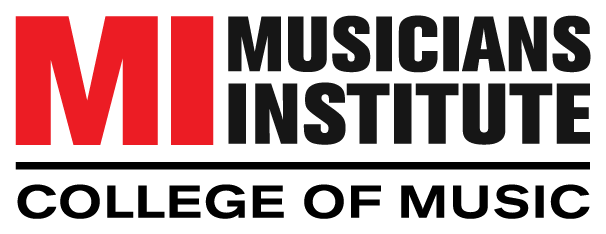For this faculty blog, Musicians Institute drum instructor writes about the importance of looking back to traditions to further strengthen the music you make today. Here, he makes the case for four of his favorite class jazz drum solos that can provide inspiration to modern musicians.
The great city of New Orleans sure loves having parades. Whether it be Mardi Gras, a community gathering, or even a funeral New Orleans celebrates life by donning costumes, playing music and dancing in the streets. As a drummer it is important to have at least a general understanding of Second Line drumming. The Second line of a parade is comprised of the group of people who are not officially part of the parade but want to follow the path of the parade. The First (or Main) Line features costumed dancers and brass bands.
Drummers wearing marching snare drums and bass drums follow the First Line and lead the Second Line. It is not uncommon to be on a gig and have a bandleader ask the drummer for a second line groove. This is where a little research can go a long way. Below is a second line starter pack of tunes for you to begin your journey into New Orleans Second Line Drumming.
“Hey Pocky Way”
This tune is a one-bar recurring rhythm with a groovy lope to it. Simply play hand to hand and add the accents that match with the kick pattern. Learning this groove will help you with coordination as well! While there are many recorded versions of this tune, The Meters version from the 1974 album Rejuvenation is essential listening. Check out the greasy groove played by drummer Zigaboo Modeliste.

Blog Post
"*" indicates required fields
By submitting this form, I authorize Musicians Institute (MI) to make or allow the placement of calls, emails, and texts to me at the phone number that I have provided, including through the use of automated technology, or a prerecorded or artificial voice. I understand that I am not required to provide my phone number as a condition of purchasing any property, goods, or services. I agree to the terms of MI’s Privacy Policy. MI will not sell or rent your information to third parties, and you may unsubscribe at any time.
For more information check out this tutorial on Hey Pocky Way:
“Iko Iko”
This tune is a real New Orleans classic that all drummers should be familiar with. A two-bar groove featuring a 3-2 clave is the magic ingredient here. If you are playing it correctly the dance floor will be packed! As with Hey Pocky Way, there are numerous versions of this tune available but I would start with Dr. John’s version from his 1972 Dr. John’s Gumbo album. Drummer Freddie Staehle plays this groove with precision and style.
For more information check out this tutorial on Iko Iko:
“Big Chief”
Big Chief may be one of the grooviest New Orleans tunes that exists. Composed by Earl King but really made popular by Professor LongHair, this tune is a rollicking frenzy of fun. Sparse on the kick but busy in the hands, if you are hip to this groove you will score huge points when this gets called on the bandstand. Check our drummer Johnny Vidacovich’s wild, yet controlled groove on the 1980 release Crawfish Fiesta::
Here is a great video of Johnny laying it down live:
“Where WIll I Be?”
While this tune may not be a standard New Orleans tune it features a New Orleans-based drummer who never ceases to amaze me, Mr. Brian Blade. This tune was composed by producer/musician Daniel Lanois. Lanois produced the 1995 album Wrecking Ball for Emmylou Harris and employed Blade’s supreme drumming for the majority of the album. On this tune Blade plays a second line-inspired groove while adding his own personal spice. Listen to the subtle nuances Brian sneaks in while maintaining the integrity of the pocket:
For more information check out this tutorial on Where Will I Be?:
These four tunes merely scratch the surface of a deep and rich history of Second Line drumming. Have fun going down the YouTube rabbit hole in this style!
Musicians Institute is the leader in contemporary music education offering certificates to Masters degrees in programs spanning instrument performance, electronic production, music business, and everything in between.
For more information on all programs offered, please visit here: mi.edu/programs/
For more information on MI Online programs, please visit here: mi.edu/programs/mi-online/

